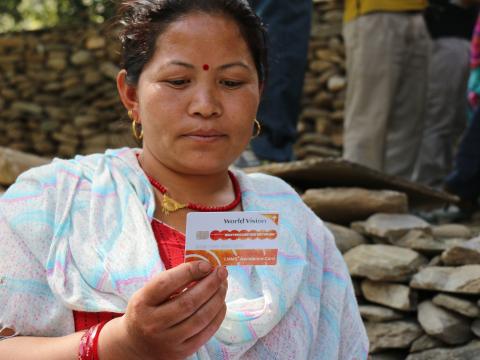Understanding the new paradigm of private public partnerships

Private partnerships are not new to the humanitarian aid sector. Many organisations like World Vision have been engaging with the private sector for decades to leverage corporate social responsibility practices; some very successfully, such as the ‘Moving the World’ initiative started with WFP over a decade ago by the former TPG (TNT) CEO Peter Bakker. Yet the majority of engagements have been less successful as they have focused on transactional rather than transformational relationships. So is there brighter future for private sector partnering, and why is it now featuring more strongly as a component of aid programming?
Humanitarian needs are both growing and changing. Humanitarian crises are increasingly protracted and complex, no longer contained within an affected community or a country’s borders, the impact that they have on children and communities are multi-faceted. Through devastation or war there is loss of life, damage to infrastructure, instability and confusion that is compounded by the medium and long-term effects of lost socio-economic support systems, livelihoods, education and health care. For communities to truly build back better their lives and livelihoods and improve their resilience to disasters, governments, civil society, NGOs, faith communities and the private sector must find new ways of working together using their comparative advantages to aid recovery and longer term resilience
In the past private sector partnerships may have been predominantly about raising funds or goods in kind, but the future and the power of private sector partnerships is potentially transformational. Multi-stakeholder partnerships with the private sector can foster innovative solutions, expedite and modernise the delivery of aid, and help advocate to reduce overall vulnerability to future shocks and crises through policy influence, improved preparedness and disaster risk reduction mechanisms.
The High Level Panel report on humanitarian financing, ‘Too Important to Fail’ (PDF), prepared for the WHS makes a strong recommendation to ‘harness the power of business’. It recognises that while the private sector may have considerable wealth and expertise to contribute to humanitarian responses, the real value is in its contribution to potential gains in humanitarian effectiveness, new ways of doing business, skills and capabilities. This has been further endorsed in the UN Secretary General’s Agenda for Humanity, under Core Responsibility Four, which calls for the delivery of collective outcomes that transcend traditional divisions between humanitarian and development actors, and for building trust between traditional humanitarian actors and the private sector.
World Vision is embracing this new partnering paradigm. Over the past few years World Vision has been working with peer agencies to understand how we, as the NGO community, can best improve our private sector interactions. Our report ‘Beyond Gifts in Kind’ explored the potential for these partnerships, exposing the currently perceived barriers to formulate new levels of understanding between NGOs, companies and communities. Simultaneously, World Vision has been collaborating with various private sector actors to test how partnerships can be applied practically in humanitarian and fragile contexts.
The recently announced World Vision / MasterCard Corp. partnership is an example of how private public partnering can improve aid delivery. The partnership focuses on improved effectiveness, timeliness and efficiency of aid delivery via strengthening business practices, such as digital identity standards, transforming aid delivery through the adoption of electronic payment services, and creating new fundraising sources. The ultimate aim is to ensure that crisis affected people have greater choice and dignity in the ways they can access humanitarian assistance, and that they can ultimately become included within the global digital financial system. World Vision and MasterCard have worked to test new digital payment services in the Philippines Typhoon Haiyan response and in the Nepal Earthquake response. This collaboration has now lead to a formal partnering framework that will enable efforts to innovate digital aid delivery as well as work on fundraising, advocacy, joint research and consulting on topics ranging from digital identity and financial education for beneficiaries, to data management and protection.
Partnerships like this have the potential to serve as a proof of concept of how private sector and NGOs can work together and shift the humanitarian focus from delivering aid to ending need.
LEARN MORE
- Read the announcement, MasterCard and World Vision to Address Key Issues Facing Humanitarian Sector.
- Learn more about World Vision's partnerships with the private sector and other actors.